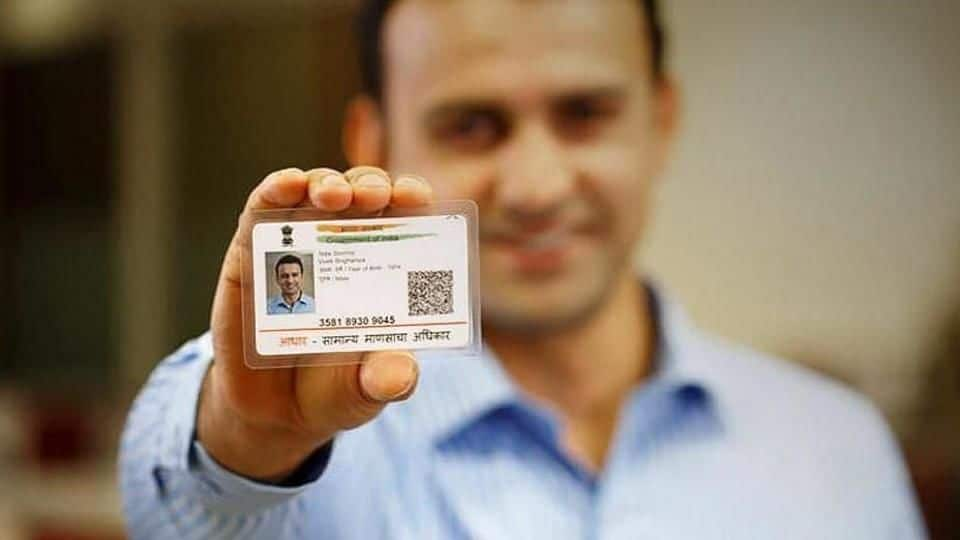
Aadhaar-based verification at airports from next year
What's the story
From 2018, passengers flying out of the Ahmedabad, Kolkata and Vijayawada airports will be able to enjoy paperless travel if they link their tickets to Aadhaar. This will be done under the government's 'DigiYatra' initiative for "a seamless, consistent and paperless service experience at every touch point". Aadhaar-based verification of passengers will involve biometrics rather than scrutiny of physical documents. Here's more.
About
How will the new initiative work?
In the e-boarding system, flyers will have to link their tickets to Aadhaar. Then they can enter ticket/Aadhaar details at e-gates, which will automatically open upon successful authentication. Once inside, each checkpoint will show a passenger has cleared the earlier one. This will eliminate the need for physical ID documents, paper tickets and boarding passes. Passengers may alternatively show paper documents.
Do you know?
These airports have already tried it out
Hyderabad's Rajiv Gandhi International Airport was the first to launch a related pilot project. There were reports Mumbai, Delhi and Baroda airports were planning similar schemes. Bengaluru's Kempegowda International Airport has decided to implement e-boarding after a two-month pilot.
Benefits
What's in it for passengers and airports?
In the e-boarding system, only those passengers whose flights are nearing departure time would be given boarding gate access, thereby avoiding overcrowding. According to a Hyderabad airport spokesperson, "E-boarding improved passenger throughput outcome by 30% and performance of security frisking area by 20%." Bengaluru airport reported it had brought down time taken for the complete screening process from 25 to 10 minutes.
Information
What about safety?
Complete security of an online system is a myth. Even the Aadhaar database has been compromised, either hacked or details leaked. Japanese researchers have already warned that high-quality cameras could copy fingerprints in documents.
Challenges
So why aren't we implementing it at the earliest?
For Aadhaar-enabled screening to work smoothly, officials would need reliable high-speed connection and real-time access to the Aadhaar database as well as that of the National Crime Records Bureau. Moreover, many might not have Aadhaar since it is not mandatory yet, so a backup system has to be in place that would allow passengers to use physical ID.